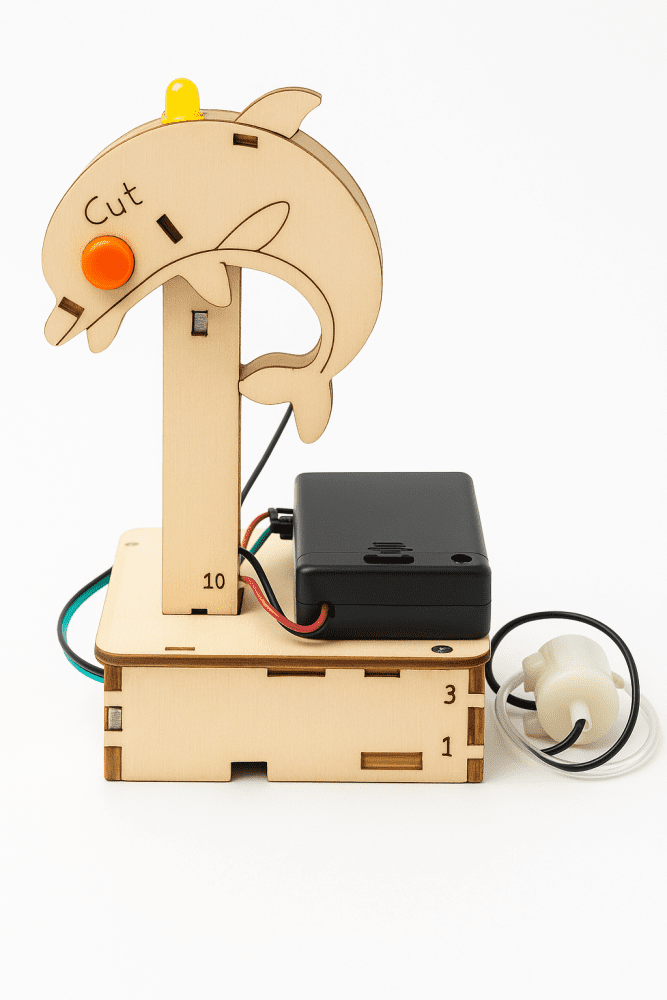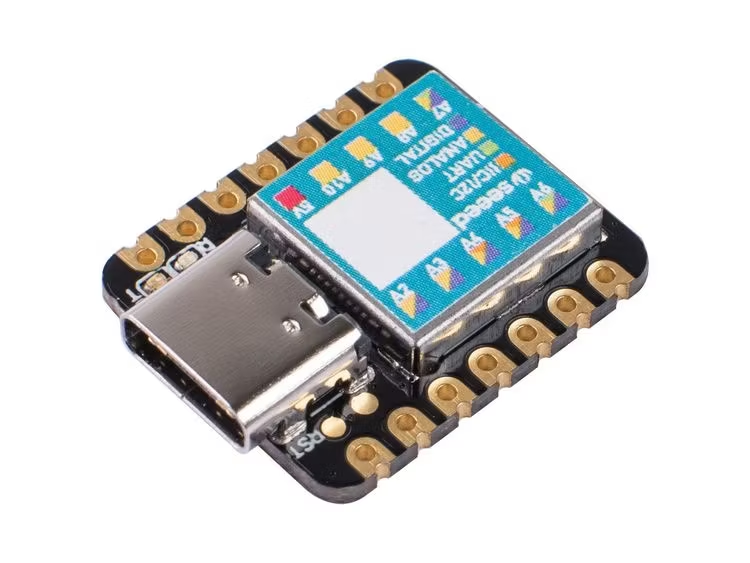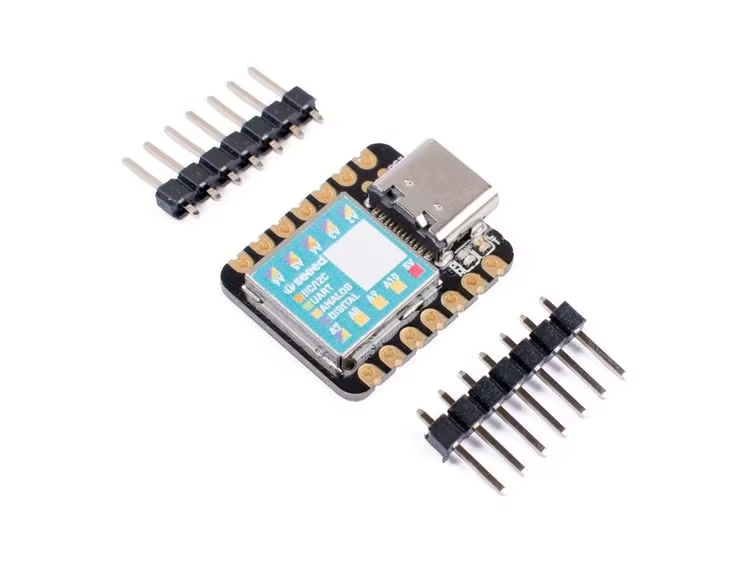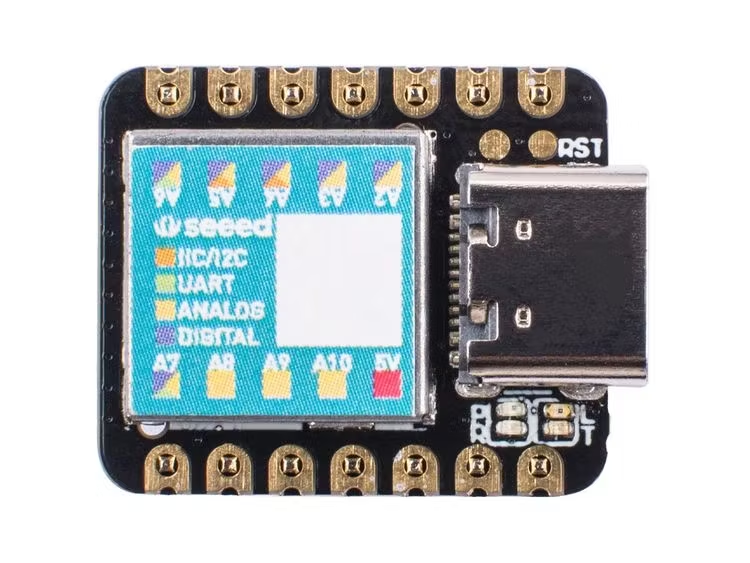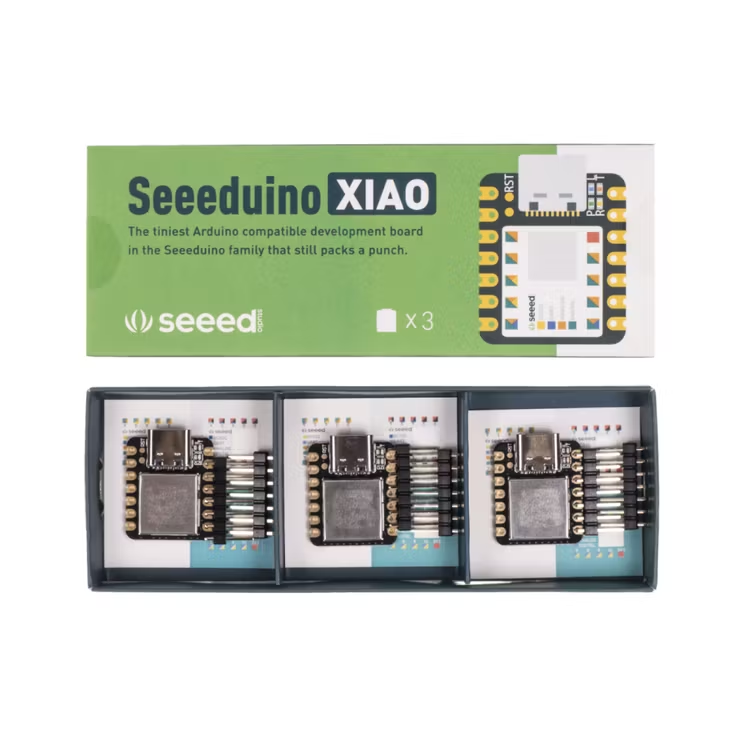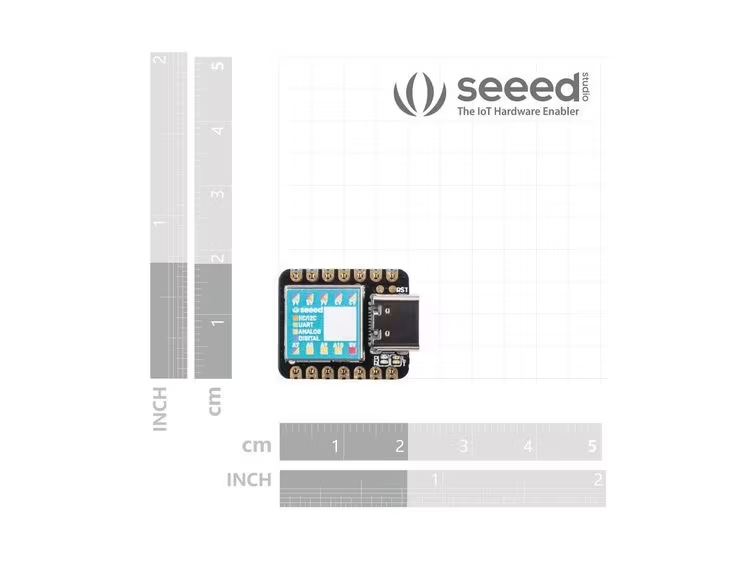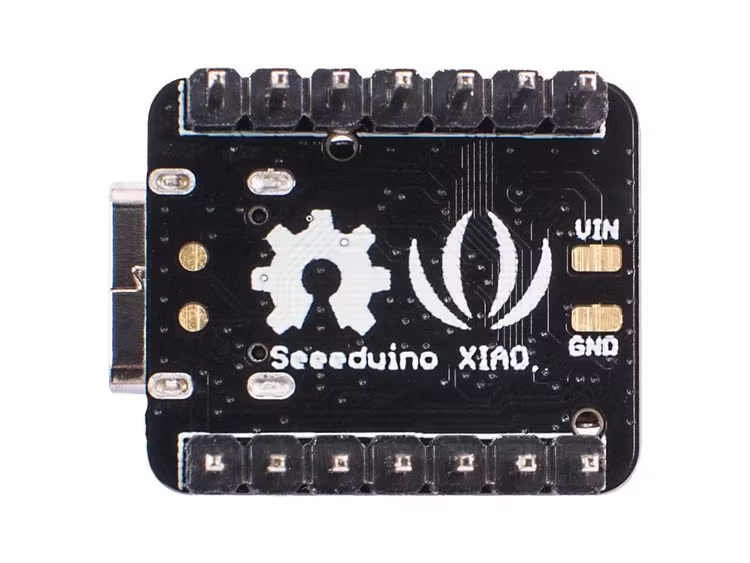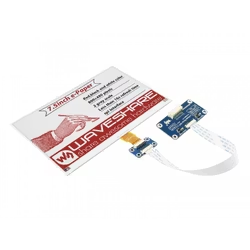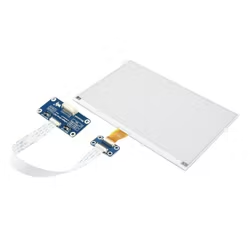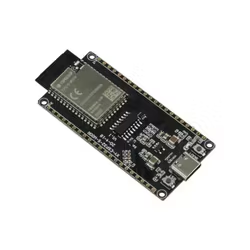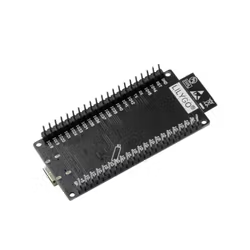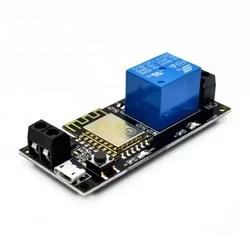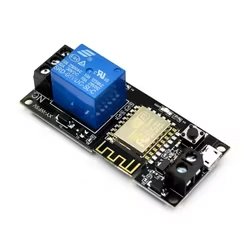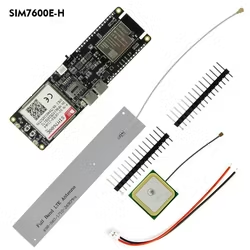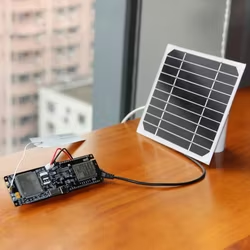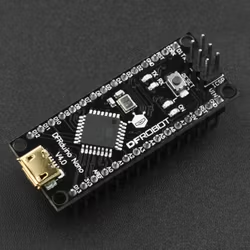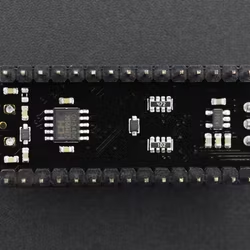Seeeduino XIAO is the smallest Arduino compatible board in Seeeduino Family. It is an Arduino microcontroller that is embedded with the SAMD21 microchip. The interfaces of Seeeduino XIAO is rich enough in such a tiny Dev. Board as well.
Key Features
- Powerful CPU: ARM® Cortex®-M0+ 32bit 48MHz microcontroller(SAMD21G18) with 256KB Flash,32KB SRAM
- Flexible compatibility: Compatible with Arduino IDE
- Easy project operation: Breadboard-friendly
- Small size: As small as a thumb(20x17.5mm) for wearable devices and small projects.
- Multiple development interfaces: 11 digital/analog pins, 10 PWM Pins, 1 DAC output, 1 SWD Bonding pad interface, 1 I2C interface, 1 UART interface, 1 SPI interface.
Description
Take a look at Seeeduino XIAO. What a small size and cute looking! It is the smallest member of the Seeeduino family. Seeeduino XIAO still carries the powerful CPU-ARM® Cortex®-M0+(SAMD21G18) which is a low-power Arduino microcontroller. On the other hand, this little board has good performance in processing but needs less power. As a matter of fact, it is designed in a tiny size and can be used for Arduino wearable devices and small projects.
Apart from the strong CPU, Seeeduino XIAO is excellent in many other functions. It has 14 GPIO PINs, which can be used for 11 analog PINs, 11 digital PINs, 1 I2C interface, 1 UART interface, and 1 SPI interface. Some PINs have various functions, A1/D1 to A10/D10 Pins have PWM functions and Pin A0/D0 has a function of DAC which means you can get true analog signals not PWM signals when you define it as an analog pin, that’s why 14 GPIO PINs can realize more I/O PINs and interfaces. Moreover, Seeeduino XIAO supports the USB Type-C interface which can supply power and download code. There are power pads at the back of the XIAO which support battery and make it designed for wearable devices to become realistic. Except for the power LED, we add a user LED on board for your better coding experience. Usually a Dev. Board as small as this size will use the chip’s inner crystal oscillator for time fixing, in order to make the clock more accurate, Seeeduino XIAO layouts an extra 32.768KHz to make the clock more stable.
Seeeduino XIAO is perfectly compatible with Arduino IDE, you can easily develop some small projects with the help of the large and comprehensive Arduino library. So get one and you will soon love it!

Attention
All the I/O pins are 3.3V, please do not input more than 3.3V, otherwise, the CPU may be damaged.
This is the Wiki of the Seeeduino XIAO, you can view the basic settings of running the board.
Specification
- CPU: ARM Cortex-M0+ CPU(SAMD21G18) running at up to 48MHz
- Storage: 256KB Flash,32KB SRAM
- I/O PINs: 14 GPIO PINs,11 analog PINs, 11 digital PINs, 1 DAC output Pin
- Interface: 1 I2C interface,1 UART interface, 1 SPI interface
- Power supply and downloading interface: USB Type-C interface
- LEDs: 1 user LED, 1 power LED, two LEDs for serial port downloading
- Reset button: two reset button short connect to reset
- Power Pads: For the battery power supply
- Software compatibility: Compatible with Arduino IDE
- Projection cover for protecting the circuit
- Dimensions: 20x17.5x3.5 mm
Typical Application
- Wearable devices
- Rapid prototyping (directly attached to the expanded PCB as a minimal system)
- Perfect for all the projects need mini arduino
- DIY keyboard
- USB development (USB to multi-channel TTL/USB host mode, etc.)
- A scenario where you need to read multiple mock values The DAC output
Demo
Hardware Pinout
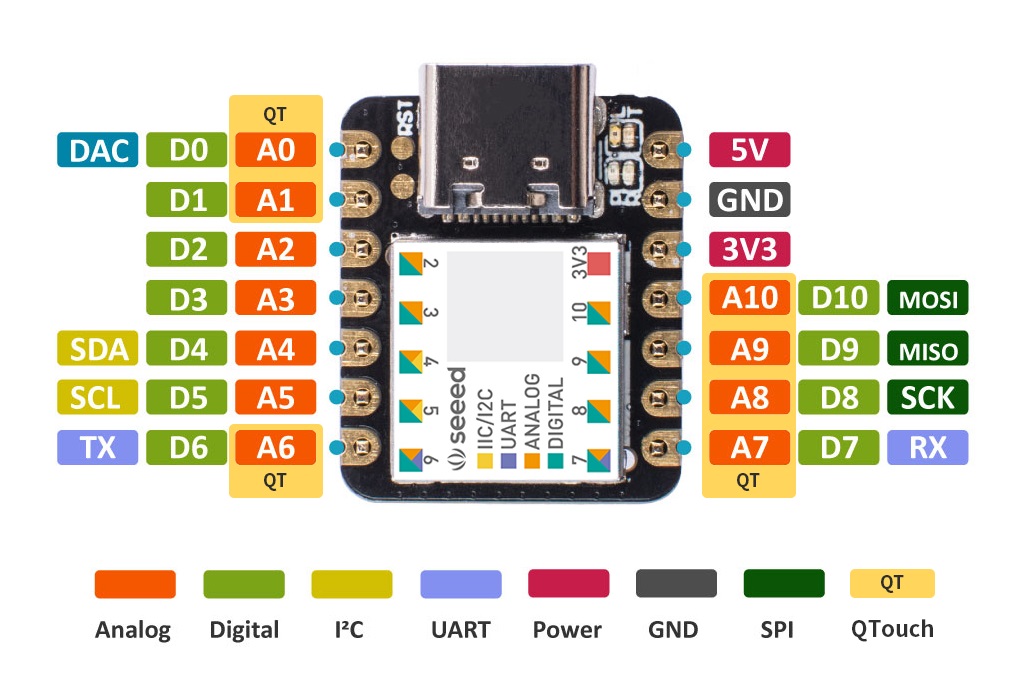
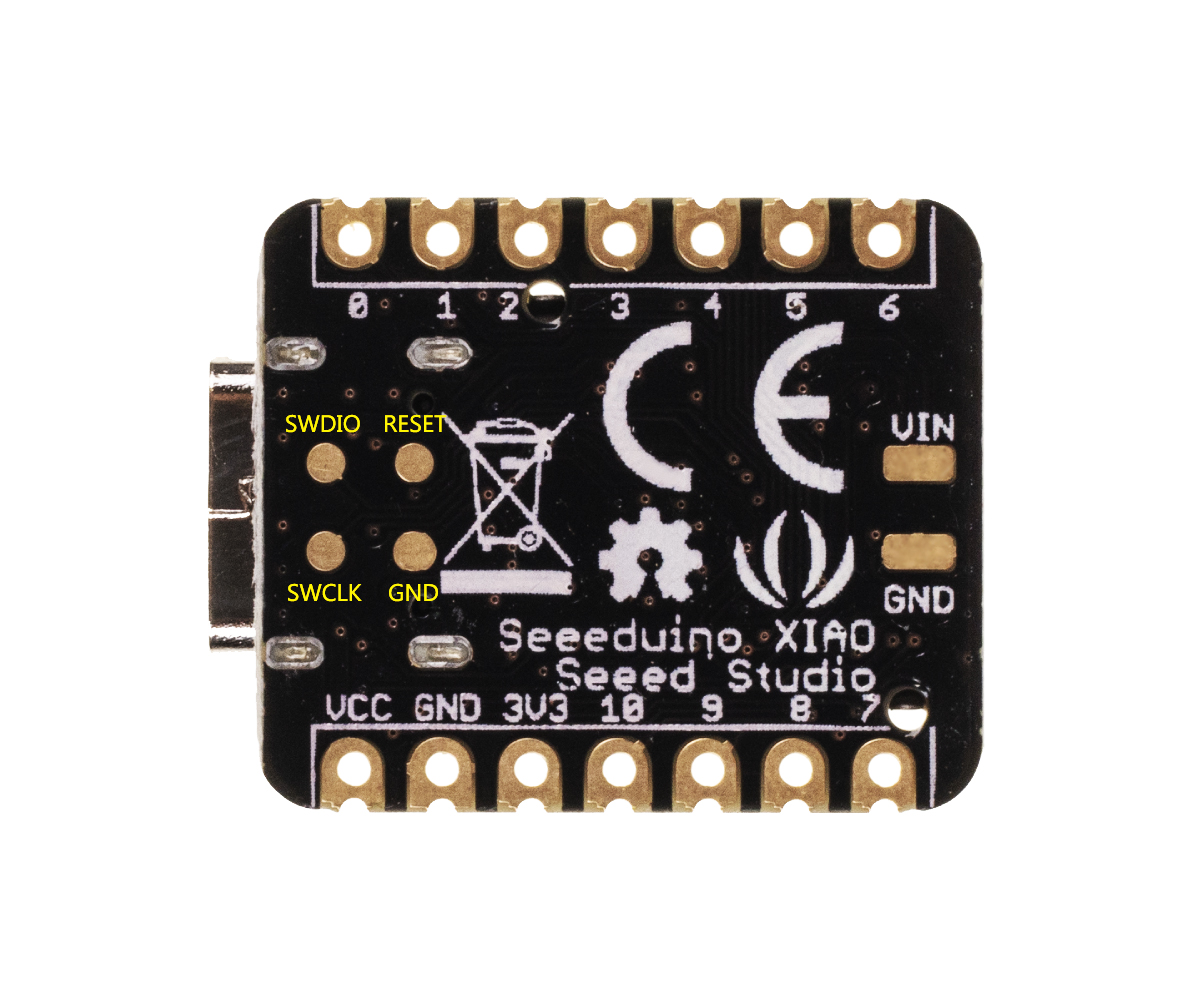
Part List
- 1 x Seeeduino XIAO - Arduino Microcontroller - SAMD21 Cortex M0+
- 2 x 7pins header
- 4 x pasters

Note
We are going to bring new add-ons to extend functionalities based on the community needs, so we are looking forward to any suggestions you guys have! Let us know in the forum, we will carefully listen to and take action!
ECCN/HTS
| HSCODE | 8543709990 |
| UPC |
| FCC | 1 |
| CE | 1 |
LEARN AND DOCUMENTS
Learn

[Blog] How to use Seeeduino XIAO to log in to your Raspberry Pi? - No USB to Serial cable required
Using Seeeduino XIAO is the way to go. But one might think it is an Arduino compatible development board and might be confused about how it can be used to connect to a Raspberry Pi.

[Others] Grove Shield for Seeeduino XIAO
Grove Shield for Seeeduino XIAO video

 Svenska
Svenska
